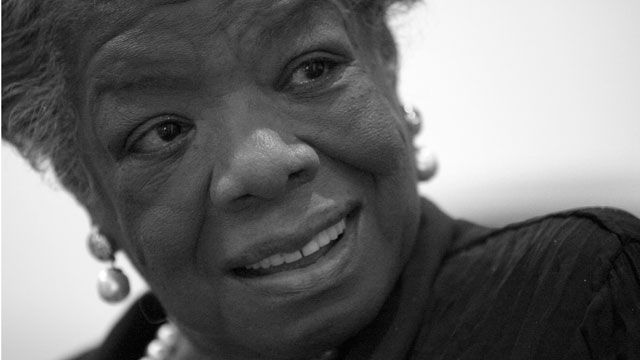Until her death in May, Dr. Maya Angelou was one of the most renowned and influential voices of our time. Hailed as a global renaissance woman, she was a celebrated poet, memoirist, novelist, educator, dramatist, producer, actress, historian, filmmaker and civil rights activist.
Raised in Depression-era St. Louis and Stamps, Arkansas, Angelou experienced the brutality of racial discrimination, but was also fortified by the values of the traditional African-American family, community and culture.
As a teenager, she won a scholarship to study dance and theater at San Francisco’s Labor School, but dropped out to become the city’s first African-American female cable car conductor at the age of 14. She later finished high school, giving birth to her son a few weeks after graduation. As a young single mother, she supported her son by working as a waitress and cook, but never forgot her passion for music, dance, performance and poetry.
During the 1950s, Angelou toured Europe with a production of the opera Porgy and Bess, studied modern dance with Martha Graham, danced with Alvin Ailey, recorded her first album, Calypso Lady, joined the Harlem Writers Guild and acted in the historic Off-Broadway production of Jean Genet’s The Blacks.
In 1970, I Know Why the Caged Bird Sings was published to international acclaim. Her list of published verse, non-fiction and fiction includes more than 30 bestselling titles.
Angelou also wrote the screenplay and composed the score for the 1972 film Georgia, Georgia. Her script, the first by an African-American woman ever to be filmed, was nominated for a Pulitzer Prize.
Angelou has served on two presidential committees, was awarded the Presidential Medal of Arts in 2000, the Lincoln Medal in 2008, and has received 3 Grammy Awards. During the 1993 inauguration of President Bill Clinton, she read her poem, On the Pulse of the Morning. The recipient of over 30 honorary degrees, she was also awarded the 2011 Presidential Medal of Freedom, the country’s highest civilian honor.

